Image
Vice President JD Vance said on Sunday President Trump was “looking at all of his options" to deploy the National Guard in major cities, including invoking the Insurrection Act of 1807, which grants the president emergency powers to deploy troops on U.S. soil during major unrest.
In an interview on NBC News’ “Meet the Press,” Mr. Vance said Mr. Trump “has not felt he needed to” invoke the Insurrection Act “right now,” but he has not ruled it out.
Last week, Mr. Trump said he saw the Insurrection Act as “a way to get around” recent court rulings blocking his efforts to deploy the guard to fight crime and put down protests against the government’s crackdown on undocumented immigrants.
Generally speaking, the Insurrection Act gives the president the power to send military forces to states to quell widespread public unrest and to support civilian law enforcement agencies. Mr. Vance, echoing the president’s arguments, claimed on NBC News that crime was “out of control” in major cities, pointing to violent attacks against immigration officers.
In the interview, Mr. Vance also addressed the cease-fire and hostage deal between Israel and Hamas, brokered by Mr. Trump, who was scheduled to travel to Israel on Sunday to celebrate the breakthrough.
The vice president refuted reports that 200 American troops would be sent to the Middle East to monitor the implementation of the cease-fire deal in Gaza.He said that the U.S. Central Command, which already has American troops stationed in that part of the world, would “monitor the terms of the cease-fire” and “ensure that the humanitarian aid is flowing.”
But the administration had no plans to deploy additional ground troops in Israel or Gaza, he said. “We’re not planning to have boots on the ground,” he said.
As the cease-fire held for a third day on Sunday, Israelis and Palestinians were preparing on Sunday for an exchange of all of the living hostages still held in Gaza for about 2,000 Palestinians imprisoned in Israel. Of the 48 hostages the Israel lists as still in Gaza, the government believes that 20 remain alive.
Mr. Vance said the living hostages should be released “any moment now” but cast some doubt as to whether the remains of all dead hostages would be able to be returned.
“I think the reality is that some of the hostages we may never get back,” he said, referring to their remains, in an interview on Fox News’ “Sunday Morning Futures.” “But I do think that most of them, with some efforts, we’ll be able to give them to their families, so they at least have some closure.”
In the NBC News interview, Mr. Vance also denied that Mr. Trump was conducting a retribution campaign against his perceived political enemies, including James B. Comey, the former F.B.I. director, and Attorney General Letitia James of New York, who were both recently indicted by the Trump-installed U.S. attorney for the Eastern District of Virginia, Lindsey Halligan.
Mr. Trump “having opinions doesn’t mean that we prosecute people unless we have the legal justification to do so,” Mr. Vance said.
Image
President Trump left Washington on Sunday afternoon, heading to Israel to meet with hostage families on Monday and then address the Knesset. He is then scheduled to travel to Egypt, where he and President Abdel Fattah el-Sisi will lead a summit to discuss the peace process in Gaza with more than 20 countries.
A spokeswoman for the Israeli government, Shosh Bedrosian, told reporters in Tel Aviv on Sunday that the hostages were expected to be released at one time to the Red Cross early Monday morning local time. They will be transferred initially to the Re’im military base in southern Israel, where they will reunite with their families, she said.
According to Vice President JD Vance, Mr. Trump plans to “welcome them in person.”
Mr. Vance, speaking on the Fox News program “Sunday Morning Futures,” also raised doubts about whether the bodies of all the dead hostages would be returned. “I think the reality is that some of the hostages we may never get back,” he said, referring to their remains, “but I do think most of them, with some effort, we’ll be able to give them to their families so they at least have some closure.”
The summit meeting in Egypt will be held at Sharm el-Sheikh, a Red Sea resort, where mediators recently hammered out a cease-fire between Israel and Hamas to free Israeli hostages in exchange for Palestinian prisoners and a partial pullback of Israeli forces.
The cease-fire, which took effect on Friday morning, is the first phase of an agreement brokered by the United States, Qatar, Egypt and Turkey to end the two-year war, with the next phases still to be negotiated. Mr. Trump put pressure on both sides to break the deadlock.
Several Arab nations who support Mr. Trump’s peace plan will attend the summit, along with the U.N. secretary-general and the heads of state from the United Kingdom, France, Italy and Spain. The president of the Palestinian Authority, Mahmoud Abbas, was invited to participate, according to Hussein al-Sheikh, a senior Palestinian official, and was expected to attend. It was not immediately clear whether any Israeli representatives would participate.
“The summit aims to end the war in the Gaza Strip, enhance efforts to bring peace and stability to the Middle East, and usher in a new phase of regional security and stability,” the Egyptian president's office said in its announcement, adding the meeting “comes in light of U.S. President Trump’s vision for achieving peace in the region.”
For Mr. Trump, the meeting appeared to be part of a victory lap, even though it still remains unclear if the cease-fire will hold and become permanent after the hostages are exchanged for 2,000 Palestinian prisoners. Two major sticking points in negotiations — whether Hamas will disarm and agree to be excluded from any future government in Gaza — are still unresolved.
The president is likely to be praised as a peacemaker in any case. Prime Minister Keir Starmer of Britain, for instance, will pay “particular tribute” to Mr. Trump, his office said in a statement.
Isabel Kershner contributed reporting from Jerusalem.
As President Trump was preparing to board a plane to Israel on Sunday afternoon, a spokeswoman for the Israeli government, Shosh Bedrosian, told reporters in Tel Aviv that the 20 living hostages were expected to be released at one time to the Red Cross early Monday morning local time. They will be transferred initially to the Re’im military base in southern Israel, where they will reunite with their families, she said.
Speaker Mike Johnson and Representative Hakeem Jeffries of New York, the Democratic leader, both appeared dug into their party’s respective positions on Fox News Sunday as the government shutdown stretched into its 12th day. “The ball is in the Senate’s court,” Johnson said. “The House has done its job.”
Jeffries, meanwhile, indicated that Democrats would not move off their demand to extend the Obamacare subsidies that are set to lapse at the end of the year in exchange for reopening the government. “My friends on the other side of the aisle, they seem to believe that healthcare is an extraneous issue,” he said. “We don’t believe it’s an extraneous issue. It’s a central issue.”
Image
President Trump announced early Sunday that he was appointing Dan Scavino, a deputy chief of staff and one of Mr. Trump’s most trusted advisers, as the head of the presidential personnel office.
Mr. Scavino will replace Sergio Gor, whom Mr. Trump in August said he would nominate to be the U.S. ambassador to India.
The personnel office role has traditionally been largely administrative but can come with significant power. This could be particularly true under a president who has been focused on whether prospective staff members meet his perception of loyalty. The office helps the president hire and fire thousands of political appointees.
“Dan will be responsible for the selection and appointment of almost all positions in government, a very big and important position,” Mr. Trump said in a social media post. He added that Mr. Scavino would retain his role as deputy chief of staff.
Mr. Scavino’s appointment comes as the presidential personnel office is mired in uncertainty about whether hundreds of thousands of federal workers who have been furloughed because of the government shutdown will automatically receive back pay once the government reopens.
The Trump administration has indicated in a private memo that only workers who are deemed essential may be automatically entitled to pay once the stalemate ends. But the office said in a question-and-answer document posted online that “employees who were furloughed as the result of the lapse will receive retroactive pay for those furlough periods.”
Both Mr. Scavino and his predecessor, Mr. Gor, have been valued by Mr. Trump for their perceived loyalty. Mr. Scavino was Mr. Trump’s golf caddy and one of the original aides in his 2016 presidential campaign. He helped craft the first Trump campaign’s social media presence, and he is among a small group of aides who have earned Mr. Trump’s confidence.
He served as the White House deputy chief of staff for communications in the final months of Mr. Trump’s first administration, and last year was named a deputy chief of staff after Mr. Trump’s re-election.
Mr. Gor helped run the publishing company that produced Mr. Trump’s books, and he ran a multimillion-dollar super PAC that supported Mr. Trump. Under his leadership, the personnel office helped conduct loyalty tests for applicants for government posts.
Some applicants for the jobs, including those inside the Pentagon and the intelligence agencies, said they were asked which political candidates they had supported, their thoughts about the storming of the Capitol on Jan. 6, 2021, and whether they believed the 2020 election was stolen, according to some applicants and those involved in the process.
President Trump is “not planning to put boots on the ground in Gaza or Israel,” Vice President JD Vance said in an interview on NBC’s “Meet the Press” Sunday morning, responding to reports that 200 American troops would be sent to the Middle East. He said that report referred to deployments by U.S. Central Command, which already has American troops in that part of the world.
![]()
Image
President Trump said on Saturday that he had “identified funds” that would allow the government to pay members of the military during the federal shutdown, even though Congress has not approved additional money for the troops.
Pentagon officials said that they planned to tap about $8 billion in unspent research, testing and evaluation money from the prior fiscal year, which they would use “to issue mid-month paychecks to service members in the event the funding lapse continues” beyond Oct. 15, the next date that they are set to be paid.
Mr. Trump’s budgetary maneuvering appeared unorthodox, even though it may spare more than 1 million active-duty service members from financial hardships as the shutdown approaches the end of its second week. It was not clear how long the Trump administration could rely on such accounting moves to pay troops in the event that Congress cannot strike a spending deal.
“I will not allow the Democrats to hold our Military, and the entire Security of our Nation, HOSTAGE, with their dangerous Government Shutdown,” Mr. Trump said in a social media post announcing the plan.
Typically, the troops do not receive wages while the government is closed, a political hazard that often spurs negotiations between Democrats and Republicans. Lawmakers otherwise have had to adopt special legislation to pay the military during a federal stoppage.
But Mr. Trump has repeatedly pushed the limits of his power in the current shutdown. The president and his aides have lessened the pain of the closure for some, and maximized it for others, including Democrats, whom Mr. Trump is trying to pressure into supporting a short-term spending deal.
Mr. Trump previously told reporters that he supported legislation to pay the troops during the shutdown, siding with House Republicans who have military bases in their districts. But Republican leaders said there was no need for such a measure, and insisted that Senate Democrats should simply pass the stopgap resolution to fund the entire government into November.
“You’ve got a military pay bill right here,” Senator John Thune of South Dakota, the majority leader, said on Friday at the Capitol, brandishing a copy of the stopgap bill. “This pays the military.”
Senators are not set to return to Washington until Tuesday, and Speaker Mike Johnson has told Republicans that he does not intend to open the House until Senate Democrats relent and approve the House-passed G.O.P. stopgap bill.
Image
The Trump administration on Saturday raced to rescind layoffs of hundreds of scientists at the Centers for Disease Control and Prevention who were mistakenly fired on Friday night in what appeared to be a substantial procedural lapse.
Among those wrongly dismissed were the top two leaders of the federal measles response team, those working to contain Ebola in the Democratic Republic of Congo, members of the Epidemic Intelligence Service, and the team that assembles the C.D.C.’s vaunted scientific journal, The Morbidity and Mortality Weekly Report.
After The New York Times reported the dismissals, two federal health officials said on Saturday that many of those workers were being brought back. The officials spoke anonymously in order to disclose internal discussions.
The mistakes rocked an agency already in tumult, and which has been a particular target of Health Secretary Robert F. Kennedy Jr. The C.D.C. lost about a third of its staff in April; many were rehired weeks later.
In August, a gunman emptied more than 500 rounds of ammunition at the agency’s headquarters in Atlanta. Later that month, Mr. Kennedy orchestrated the ouster of the agency’s director, Susan Monarez, and precipitated a series of high-profile resignations.
Among the workers whose firings were revoked were members of the elite corps of “disease detectives” who are typically deployed to the sites of outbreaks. The team that puts together the M.M.W.R., which communicates the agency’s recommendations and research, has also been brought back.
The employees “were sent incorrect notifications, which was fixed last night and this morning with a technical correction,” a senior administration official said. “Any correction has already been remedied.”
In order to ensure that teams confronting disease outbreaks include scientists with varied expertise, they comprise staff from various parts of the agency.
The two top leaders of the measles response, for example, are officially employees of the office of the director at the Global Health Center, and the office of the director at the National Center for Immunization and Respiratory Diseases. When outbreaks die down, team scientists return to their regular positions.
The leaders of the measles team were let go when the administration eliminated those two offices. But just as entire units must be cut in such a layoff, entire units must also be restored.
Athalia Christie, who was “incident commander” of the measles response, had nearly 30 years of experience managing outbreaks, including Ebola, Marburg and mpox, previously called monkeypox. The White House often reached out to her for help with outbreaks.
“Athalia is very well liked by the administration,” said Dr. Demetre Daskalakis, who led the respiratory disease center before he resigned in August. He had brought in Dr. Christie to lead the measles response.
Another senior infectious disease expert, Maureen Bartee, was working at the Department of State. But both their jobs fell under the director’s office of the C.D.C.’s Global Health Center, which was eliminated in the layoffs.
By Saturday night, employees of both offices, including Dr. Bartee and Dr. Christie, had received notices of their rehiring. They and others received a two-paragraph email saying that the notice they had received “on or about” Oct. 10 had been revoked.
“You will not be affected by the upcoming RIF,” the email said.
The confusion over how the disease teams are organized “demonstrates their lack of understanding that this thing is an interconnected organism,” Dr. Daskalakis said, referring to the C.D.C.
“I’m happy people are back, but this damage is not easy to repair both for current staff and for people who will lead public health in the future,” he added.
The agency’s entire Washington office, which was laid off on Friday, will not be rehired. Nor will employees of the office of the director of the center for injury prevention, or those at the division of violence prevention policy.
“This is going to be devastating to Americans and to the global community,” said Dr. Debra Houry, who served as the agency’s chief medical officer before she resigned in August in protest against the administration’s policies.
“They are dismantling public health,” she added.
Tony Romm contributed reporting.
A correction was made on
Oct. 11, 2025
:
An earlier version of this article misstated Maureen Bartee’s occupation. She is an infectious disease expert at the State Department, not part of the measles team.
Image
In almost any other government shutdown, Senators Tim Kaine and Mark Warner, both of Virginia, would probably top the list of Democrats most likely to try to find a quick off ramp.
They represent the state with the second-highest concentration of federal employees in the nation. Both have historically been eager to join the so-called bipartisan gangs of senators who try to negotiate their way through partisan gridlock.
Instead, the two have appeared remarkably dug in, even as President Trump and his top lieutenants have threatened to use the shutdown to drastically accelerate their campaign to reduce the size of the government. They say they are channeling federal workers who are furious at the White House’s ongoing assault on the bureaucracy and are urging their representatives in Congress to keep up the fight.
“I’ve heard that sentiment more loudly than I thought, because in Virginia, we have an awful lot at stake,” Mr. Kaine said in a recent interview. “We suffer more in a shutdown scenario than anybody else. But I think they feel like, ‘You’re threatening to hurt us. You’ve been hurting us since Jan. 20.’ In some ways, it’s kind of not a credible threat, because you’ll do it anyway, whatever happens.”
The dynamic has fueled Democrats’ resolve not to back down as the shutdown impasse drags into its second week. Democrats representing large populations of federal workers have for months heard from livid employees about the Department of Government Efficiency emails they received asking them to provide a list of accomplishments; the chaos and upheaval at their agencies; and the fears of retaliation.
Image
Mr. Trump has stepped up the threats in recent days, saying that he would deny furloughed workers back pay earned during the shutdown, and promising that he would seize the opportunity to slash programs and projects Democrats care about.
So far that has only fueled Democrats’ outrage, strengthening their determination to continue demanding health care concessions as a condition of any deal to fund the government. But that determination will be tested in the days ahead.
Russell T. Vought, the White House budget director, announced on Friday that the administration was beginning another round of federal worker layoffs, fulfilling Mr. Trump’s threats. And many federal employees are set to miss their first paycheck next week.
“To their credit, the White House has now for 10 days laid off doing anything in hopes that enough Senate Democrats would come to their senses and do the right thing and fund the government,” Senator John Thune, Republican of South Dakota and the majority leader, said at a news conference on Friday, minutes before Mr. Vought’s announcement. “But now where we’re getting to is where people are going to start missing paychecks. This gets real.”
Democrats on Friday gave few indications that they would be swayed.
“This latest round of federal firings is not an unfortunate byproduct of the government shutdown, but a deliberate choice,” Mr. Warner wrote on social media. “Republicans are intentionally holding federal workers hostage to force through their agenda driving up health care costs for millions.”
Image
Representative Don Beyer, a Virginia Democrat who represents the Northern Virginia suburbs, home to one of the largest concentrations of federal workers in the country, said that the move would “make it harder to get the bipartisan deal that is needed to end this shutdown.”
“President Trump and Russ Vought have been firing federal workers by the thousands continuously since the beginning of the DOGE disaster, and as numerous Republicans have admitted, they plainly hoped to use the pretext of a shutdown to fire even more American workers,” Mr. Beyer said.
In the hours before the government shut down late last month, the White House had threatened to maximize the pain of a funding lapse in an attempt to pressure Democrats into caving and accepting a short-term deal.
Federal workers at the time were largely unfazed, Democratic senators said.
“I don’t think they’re moved by the president’s threats,” said Senator Adam B. Schiff of California, who represents roughly 8 percent of all federal workers. “If anything, I think it hardens the resolve to stand up to him.”
Senator Andy Kim of New Jersey said that he sat down last week with federal workers in New Jersey.
“I heard about their anxieties and fears, but I also heard from them that some things are worth fighting for,” Mr. Kim said.
Image
And while Republicans have sought to pin the blame on Democrats for the furloughs and the soon-to-be-missed paychecks for U.S. troops, it is not yet clear whether voters will agree. During shutdowns, the majority party in Congress is typically reluctant to pass piecemeal legislation to fund popular portions of the federal government, such as the troops, fearing that doing so could relieve pressure on the other party to cut a deal to reopen.
When Speaker Mike Johnson took live questions from C-SPAN viewers on Thursday, a woman who identified herself as a Republican military wife called in and chastised the Louisiana Republican for keeping the House out of session and not passing legislation that would ensure that troops get paid during the shutdown.
“You have the power to do that,” the caller, identified as Samantha from Fort Belvoir, Va., said, noting that Mr. Trump had backed such a measure. “And as a Republican, I’m very disappointed in my party, and I’m very disappointed in you, because you do have the power to call the House back.”
She said that her family was living “paycheck to paycheck,” and that any lapse would threaten their ability to pay for their children’s medications and medical bills.
“You could stop this, and you could be the one that could say the military is getting paid,” she told the speaker. “And I think that it is awful, and the audacity of someone who makes six figures a year to do this to military families is insane.”
On Saturday, Mr. Trump sought to alleviate that issue by announcing that he had “identified funds” that would allow the administration to pay military service members on Oct. 15, even though the government remained shut down.

 1 day ago
1
1 day ago
1
.jpeg)

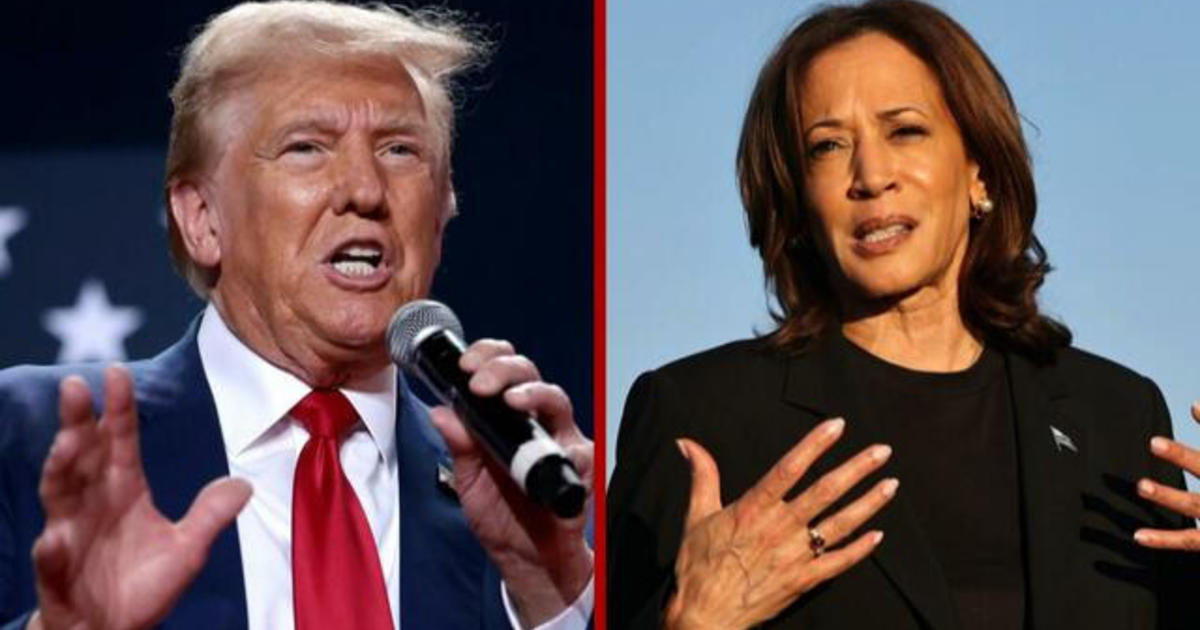
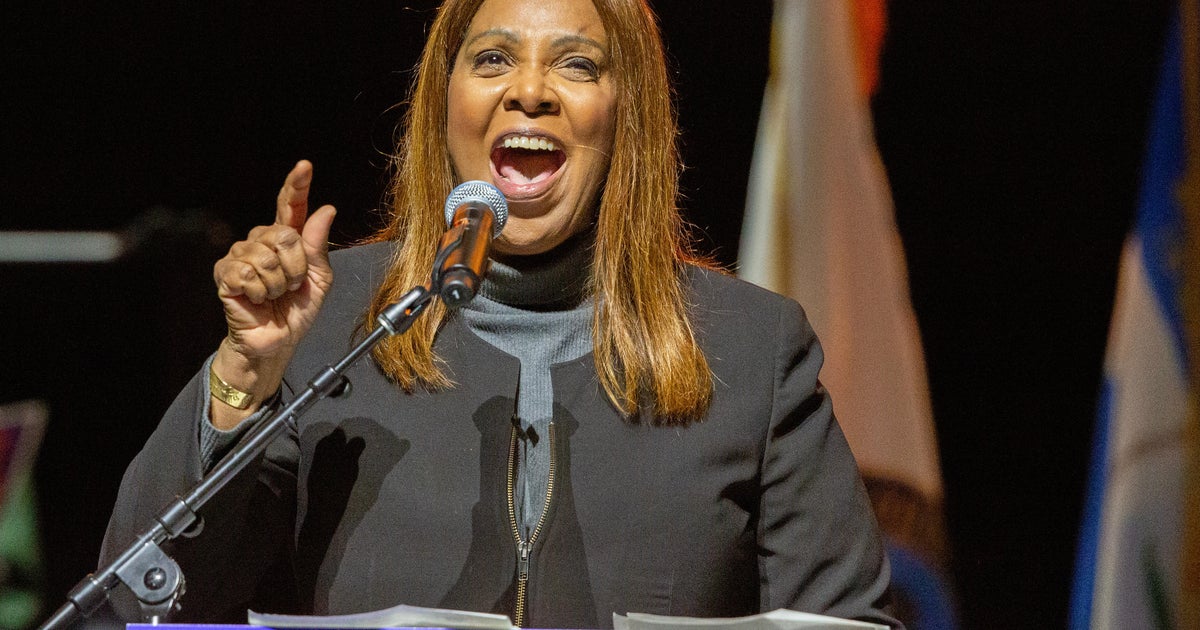



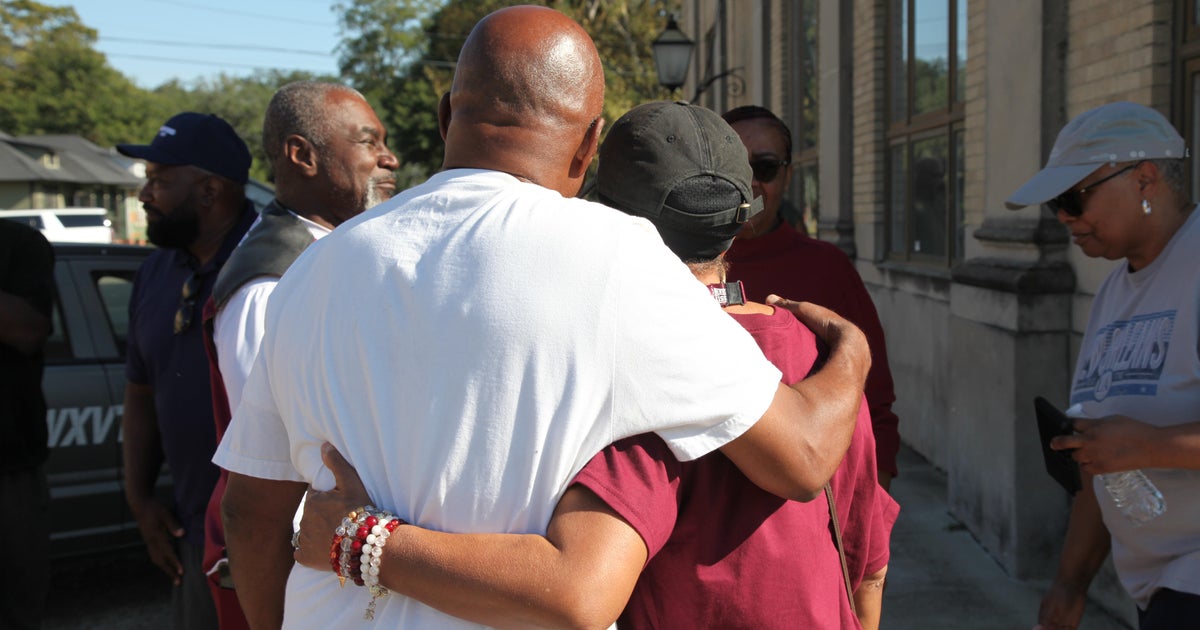


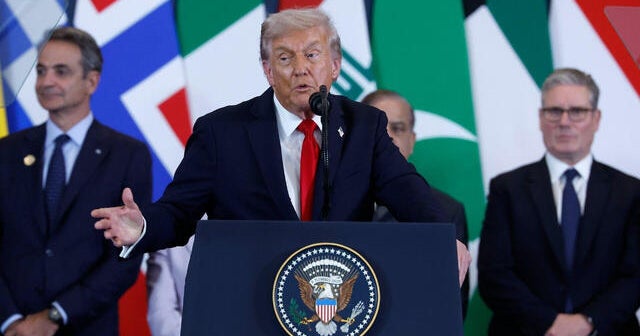
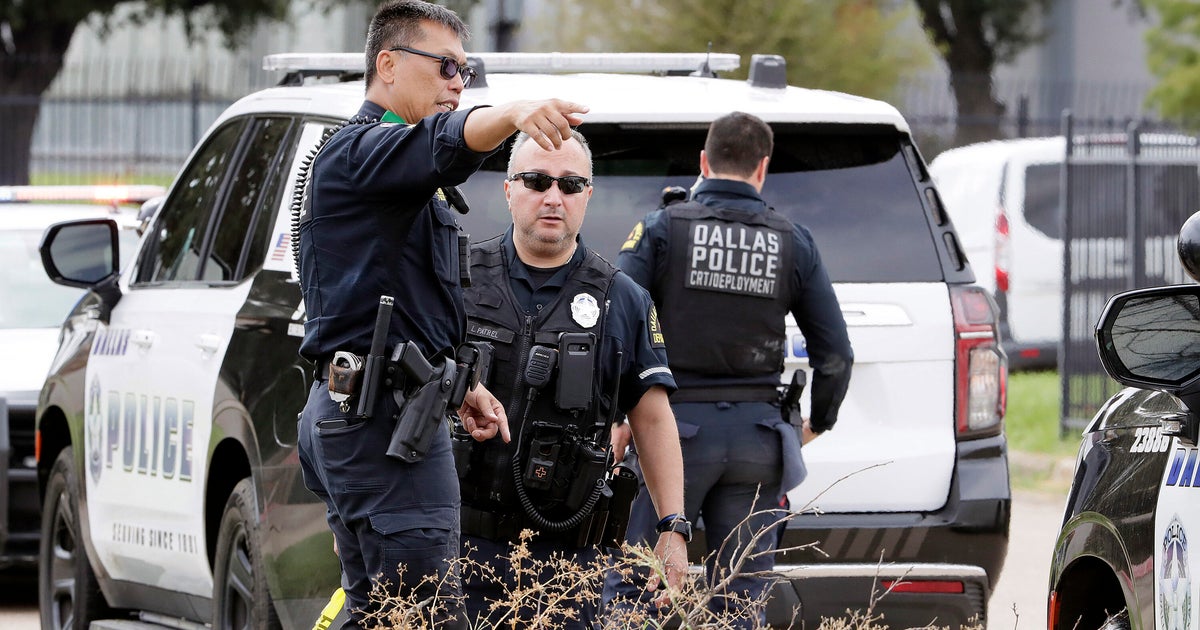




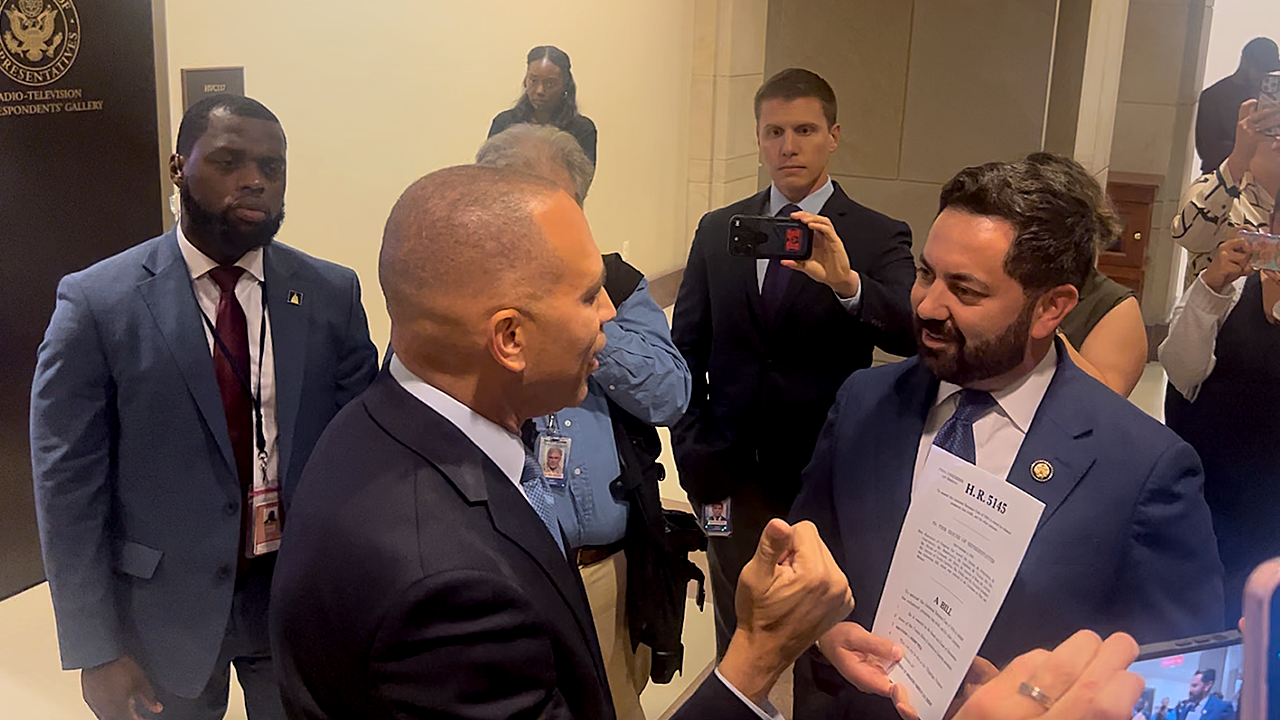

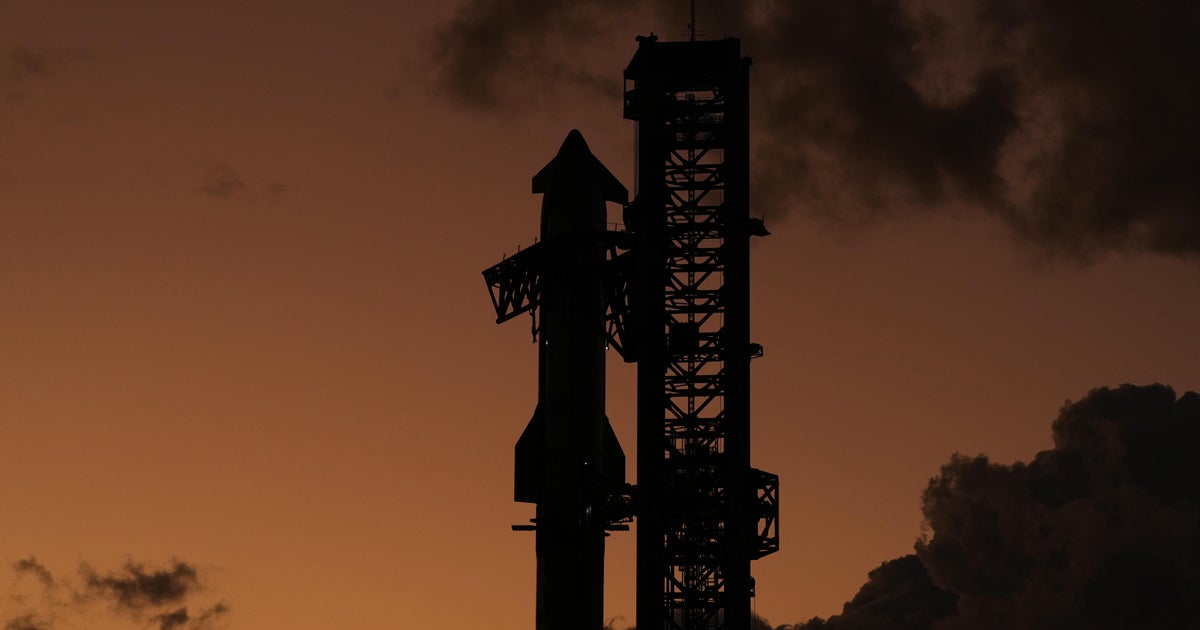





.jpeg)













 English (US) ·
English (US) ·